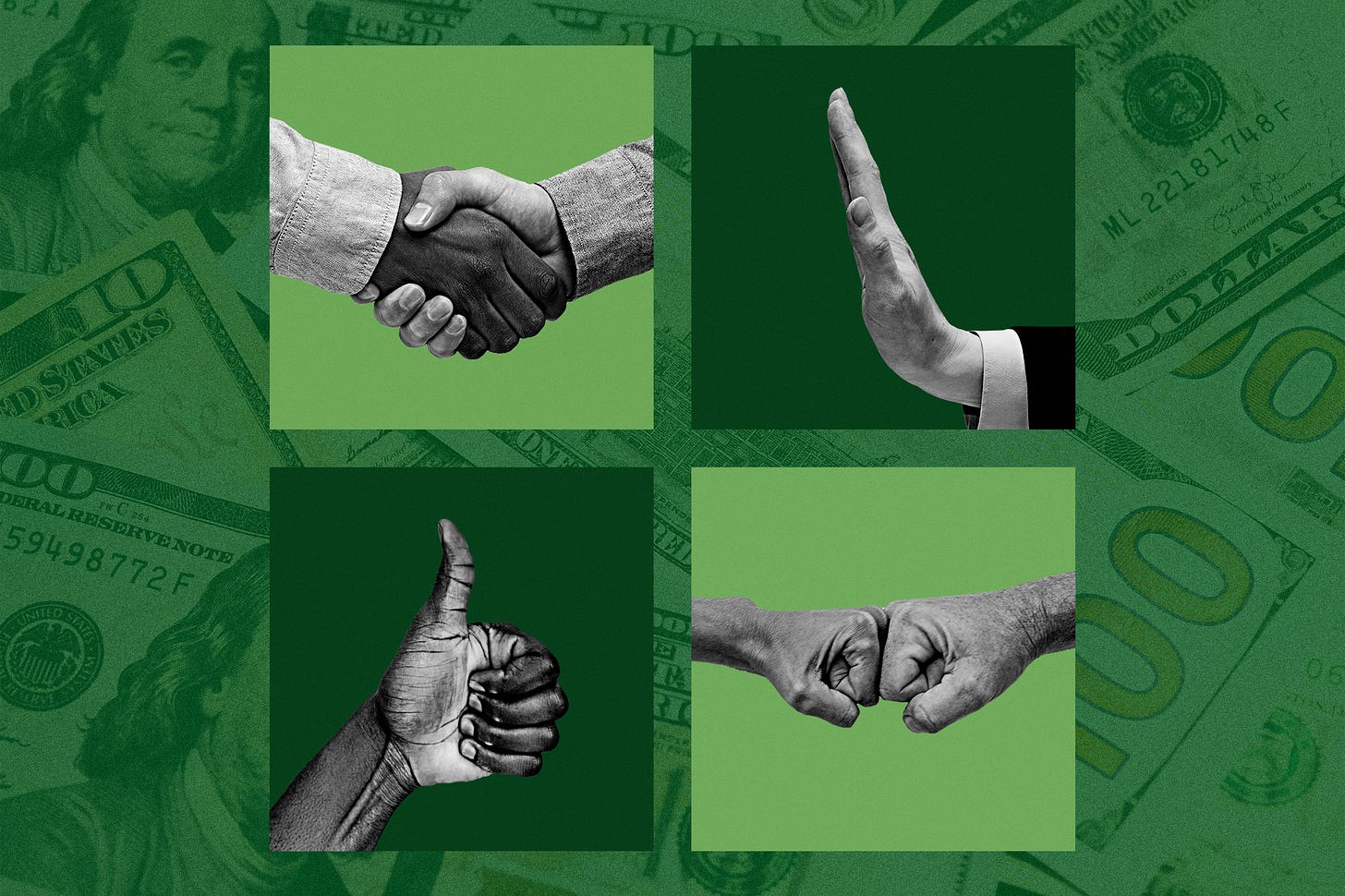Showveralls & Mini-First-Looks: How to Win TV's Post-Quote Deal Era
Take it or leave it? Not always, as lawyers and agents share how they're adapting, fighting for client value & even feeling optimistic

This is second in my two stories this week on the new state of TV deals. On Tuesday, I scooped Apple’s new backend deals for writers.
“Hey, I've got tons of out-of-work high-level writers who are standing in line behind you. So, if you don't want the deal, tell me and we'll move to the next name on my list.”
“I know your guy’s quote is much higher, but this is what we have. Does your client want a job?”
In other words, take it or leave it. This is the message talent reps tell me they’ve been hearing from studios and streamers when negotiating deals for their TV writer clients.
“Overall, the climate since the strike has been rough,” says Lichter Grossman partner Jonathan Shikora. “There's been a lot of belt-tightening, and it feels like they’re taking that out on the writers and looking to save on writer deals, maybe more than anything else.”
The marketplace for scribes isn’t all bad though — and players on both sides of the table are innovating to create new kinds of opportunity in a less plentiful era. Just over a month ago, a talent lawyer mentioned offhand that he’d been seeing more “showveralls” lately. Then, within days, Universal TV president Erin Underhill told Elaine Low that her studio has been experimenting with “mini-first-looks.”
Traditional overalls and first-looks may be falling out of favor with studios and streamers — unless, of course, you’re on a first-name basis with all of Hollywood like Shonda, Dick, Chuck, Julie, Ryan, Darren, Greg or a handful of others — but these thriftier hybrids are on the rise.
If there’s an undercurrent, it’s this: Back when everyone was recruiting showrunners for the Streaming Wars, they were writing enormous checks based on the presumption of success. With clearer eyes and tighter belts, now they’re essentially saying “proof first, then pay.”
"It's six of one, a half dozen of the other,” says veteran talent lawyer Jeff Frankel of the cleverly-named deal models. “The general concept is different ways of the studio keeping the big writers that they like in business with them but not guaranteeing them money.”
A lot of it, he says, is a response to some of those big-ticket pre-pandemic deals being, well, less than productive.
“This is the pendulum swinging,” Frankel says.
With that pendulum in motion and buzzy new pacts being tested, I asked lawyers, agents and studio sources how they’ve been getting creative with deals to navigate the impasse between writers getting paid and studios saving money.
Today I talk to WME partner Lindsay Aubin, Del Shaw’s Lily Tillers and Kevin Garlitz, Joel McKuin, Shikora and Frankel and many more about how they’re advocating and innovating for clients now.
In this issue, paid subscribers can learn:
✅ Why episodic quotes are dead — and what matters now when setting writer pay
✅ How top reps respond to studio lowballs
✅ One dealmaker’s minimum floor for a showrunner
✅ The truth about bonuses: smart back-end play or studio smokescreen?
✅ Why Universal TV’s “mini-first-looks” are catching fire — and what they actually pay
✅ What’s a “showverall” really — and how it’s replacing the overall deal
✅ EP fee tricks and non-exclusive workarounds keeping top writers afloat
This column is for paid subscribers only. Interested in a group sub for your team or company? Click here.
For full access and to continue reading all Ankler content, paid subscribers can click here.


